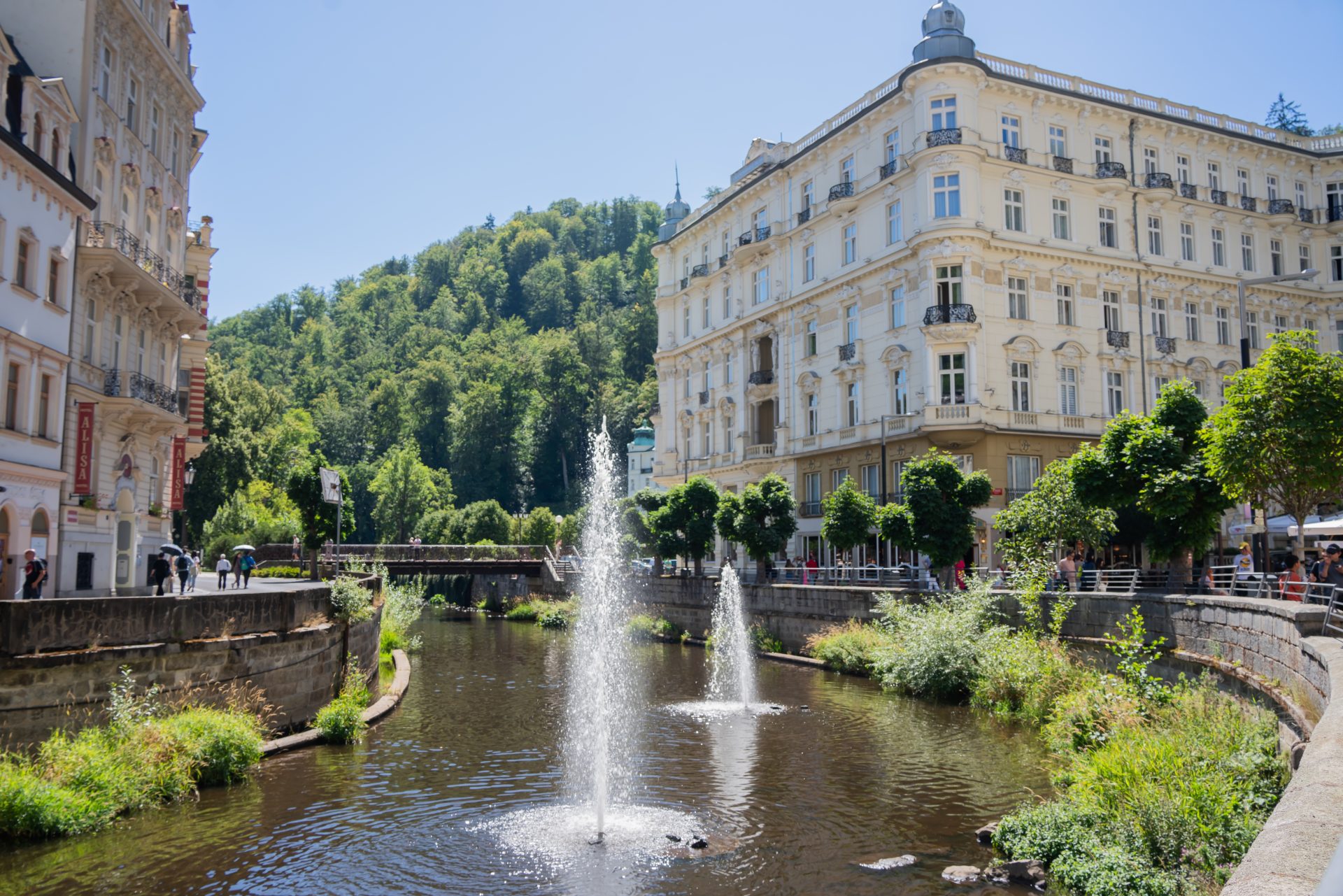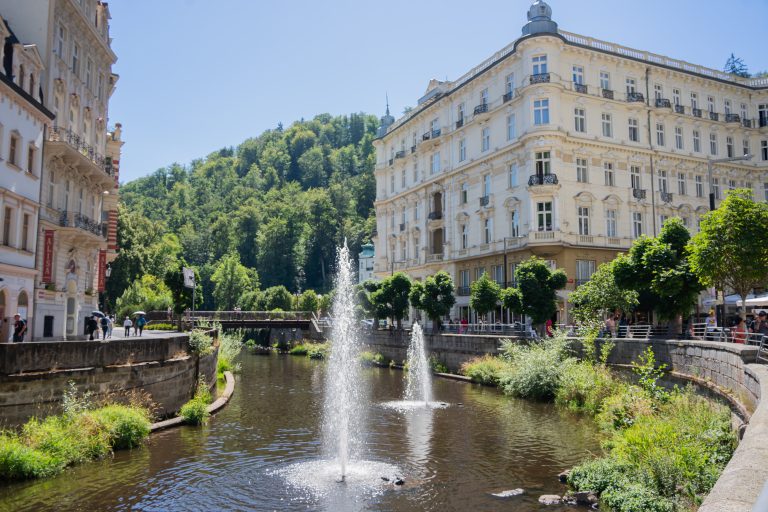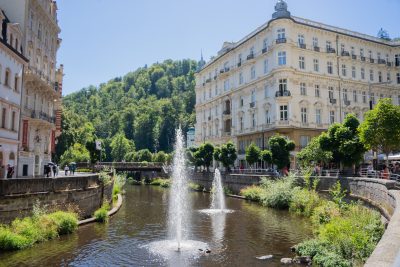Illustration: Shutterstock 2025-06-26
Illustration: Shutterstock 2025-06-26
Asmat Shanava, owner of the Pirosmani restaurant in Karlovy Vary, is an indispensable figure for both Russian organized crime and the Russian state. She works as an intermediary, securing payments, setting up companies, and coordinating meetings. She arrived in Karlovy Vary with her husband in the late 1990s. He died shortly afterwards. However, Asmat Shanava stayed and expanded her connections to include the mayor of Karlovy Vary. Russian citizen Alexandr Franchetti also contacted her for help. Franchetti was arrested in Prague in 2021 on suspicion of forming an armed group during the annexation of Crimea, he urgently sought someone to pay his lawyers for his defense.
It was Pravfond, a Russian foundation founded in 2012 to defend the rights of Russians abroad, which promised money to him. “Dear Compatriatos,” a joint investigation based on nearly 50,000 leaked emails—obtained by Danish public broadcaster DR and analyzed with OCCRP, VSquare, Investigace.cz and 27 other media partners—has revealed that Pravfond serves as a Kremlin tool to defend spies, fund propaganda, and expand global influence. (Here you can read the main overview of the investigation, and here about the Polish operations of Pravfond.)
Shanava and Russian-Georgian Organized Crime
The Pirosmani restaurant is located on the steep cobbled Kolmá Street in a three-story building. Eight other companies are or have been registered at the same address. Investigace.cz managed to find out that at least three of these companies belong to the heads of Russian criminal clans, so-called thieves-in-law, or other prominent figures in Russian organized crime. Three other high-ranking members of Russian organized crime appear in companies in which Asmat Shanava has a stake.
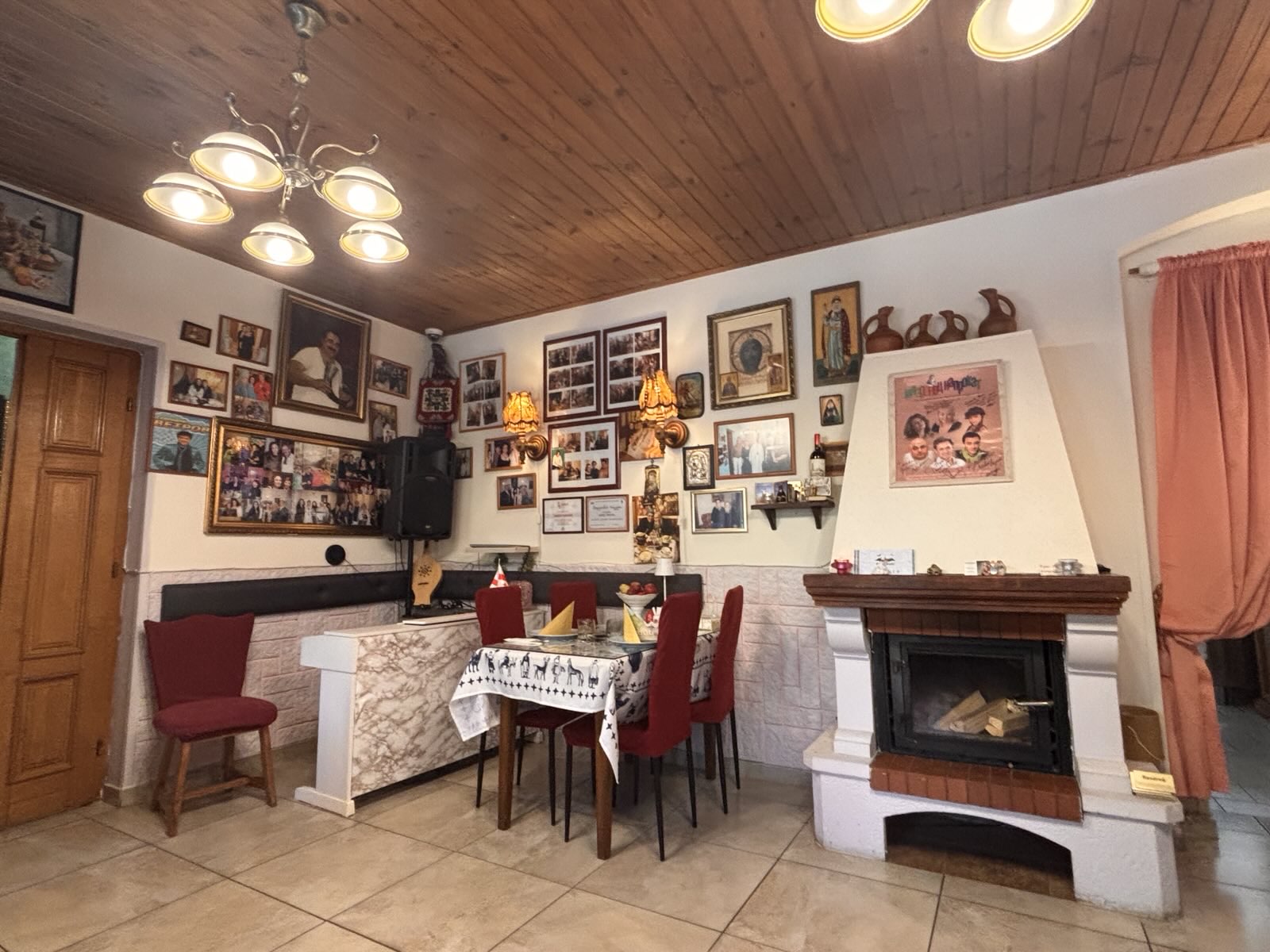
There are only four tables in the Georgian restaurant Pirosmani, which is run by Šanava in Karlovy Vary. Source: Investigace.cz
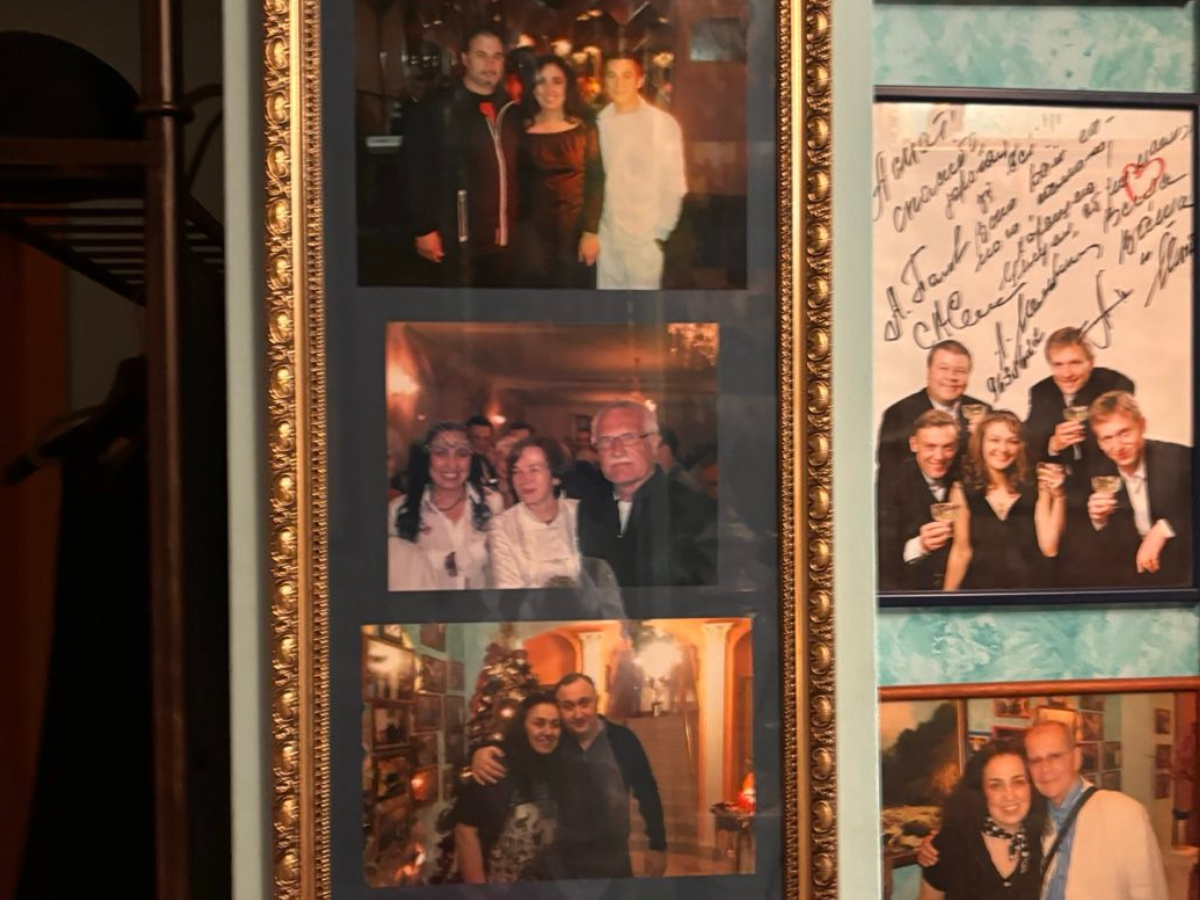
The walls of the restaurant are decorated with photographs of the owner with celebrities. On one of them, Šanava poses with former Czech president Václav Klaus and his wife Livia. Source: investigation.cz
Asmat Shanava came into contact with organized crime long before she arrived in Karlovy Vary. During her stay in Moscow, Gia Kvaracchelia, known in the underworld as Gia Lapša and considered one of the influential figures of Georgian organized crime, was registered at her home address.
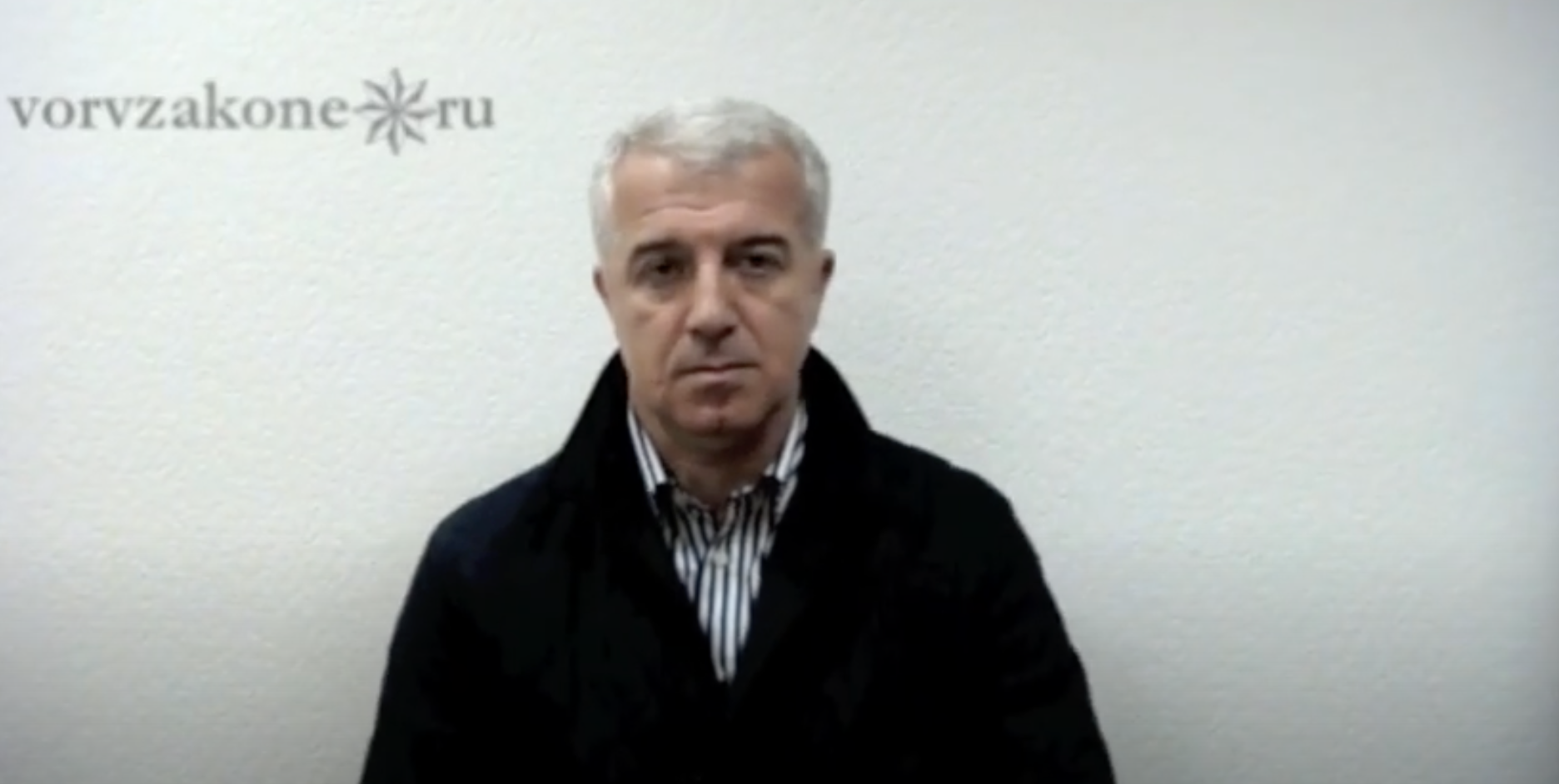
In the past, Gia Kvaracchelia belonged to the closest collaborators of the infamous Zachary Kalashov. Source: vorvzakone.ru/primecrime.ru
In the past, Kvaracchelia was one of the closest associates of the infamous Shakro Molodoy (Zachary Kalashov, alias Shakro Molodoy). He was in charge of finances, the so-called obščak – the criminals’ treasury, which once served as a common fund for clan members in need, and was later used by the thieves-in-law for their private needs.
However, the owner of the Pirosmani restaurant in Karlovy Vary does not only have good relations with the criminal world. As leaked emails from the Russian organization Pravfond, obtained by investigace.cz as part of the Dear Compatriots project, show, Šanava is a valuable asset, at least for this Russian state institution.
According to previously leaked internal documents, this foundation had several agents of the Russian intelligence service SVR in its leadership and finances both pro-Kremlin propaganda in Europe and the legal costs associated with the defense of Russian citizens. In the past, Pravfond paid for the defense of arms smuggler Viktor Bout and FSB hitman Vadim Krasikov, who murdered a Chechen refugee in Berlin whom the Kremlin had labeled a terrorist.
Shanava Deals with Nikulin
According to Czech Radio, Asmat Shanava was also involved in the case of prominent Russian hacker Yevgeny Nikulin. He was arrested in the Czech Republic in 2017 and eventually extradited to the US. Although his extradition to the United States was more likely, Russia sought his return to Moscow.
Shanava’s role was to be as follows: on the instructions of her Russian contacts, she was to arrange a financial offer for legal representation or lobbying for Stanislav Mečlo, then an associate of the Minister of Justice. However, the negotiations broke down over mutual demands regarding guarantees and financial conditions. Šanava admitted to radio journalists that she had been asked for help by her “friends from Russia,” but refused to give specific names.
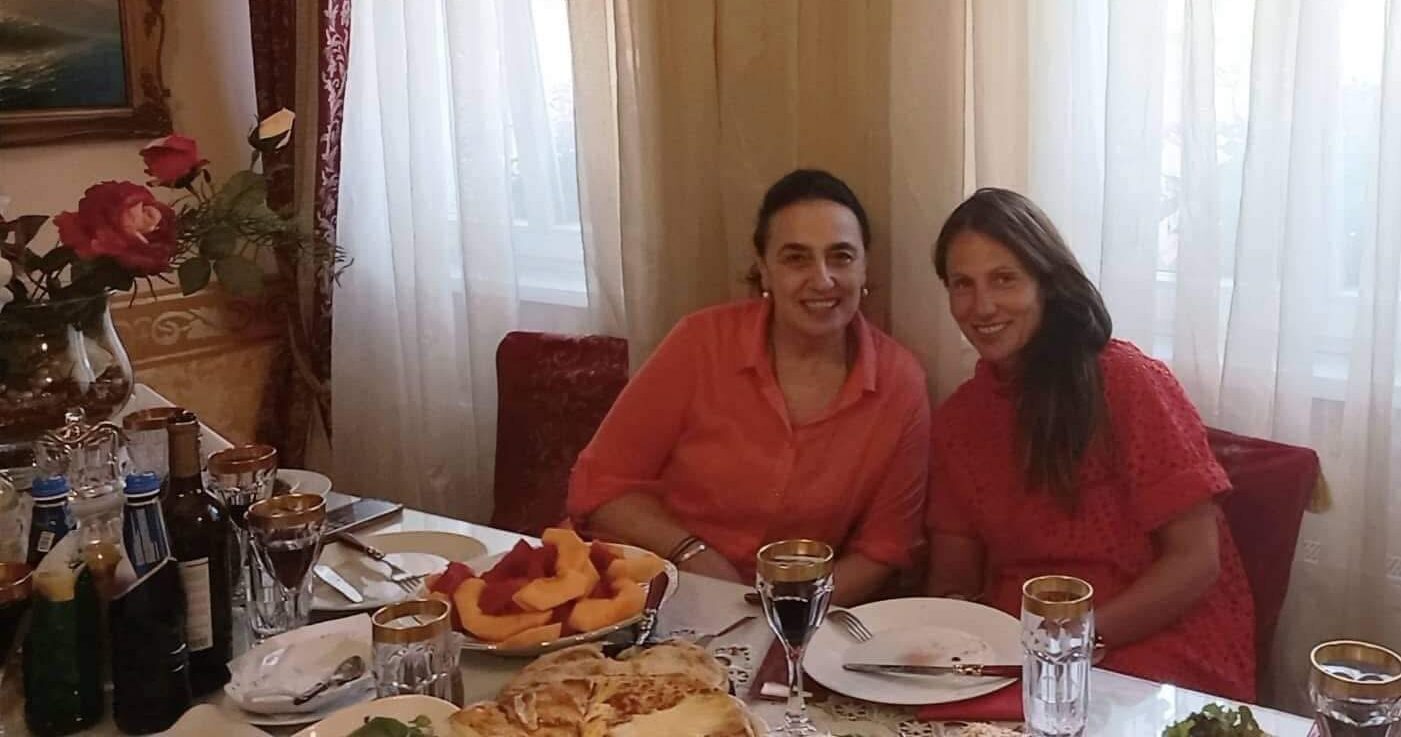
Asmat Shanava is a long-term friend of the mayor of Karlovy Vary, Andrea Pfeffer Ferklová (ANO). However, according to the mayoress, it is not a close relationship. Source: Asmat Shanava’s Facebook
How to Pay Czech Lawyers From Sanctioned Funds?
In one of the leaked Pravfond conversations, Shanava was recommended as a person who could help with payments, as the organization’s financial transactions to EU countries for the legal defense of prominent Russians had become complicated after sanctions were imposed. Thanks to leaked emails from Pravfond, we know that this happened at least once—Pravfond did indeed turn to Shanava to secure payment for the legal defense of Alexander Franchetti.
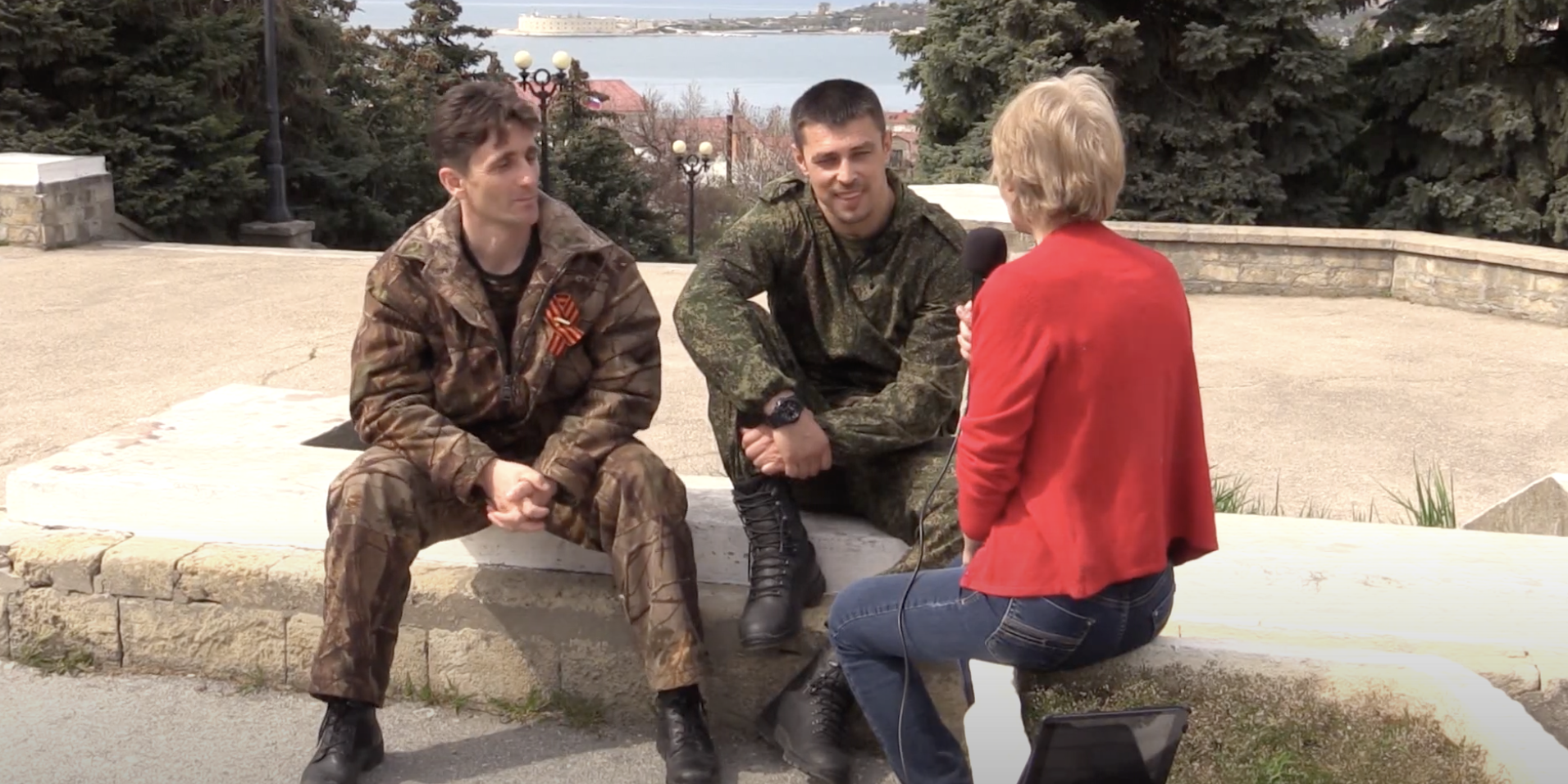
Interview with Alexander Franchetti and Dejan Berić, Serbian volunteer of the Donetsk People’s Republic | Source: Youtube
He was arrested at the Prague airport in 2021 and charged with terrorism based on an international arrest warrant issued by Ukrainians. Prosecutors believed that Franchetti had helped the Russians annex Crimea by passing information to the Russian army and carrying out acts of sabotage. According to the indictment, the group participated in “armed attacks against Ukrainian government forces, civilians, and critical infrastructure” on the Crimean peninsula.
Franchetti had lived in Prague since 2000, where he owned several companies and worked as a fitness trainer. In court, he denied all charges and defended himself by saying that he had arrived in Sevastopol after the start of the Russian annexation to protect his family and property from the war. The Prague Municipal Court initially approved Franchetti’s extradition to Ukraine, but the decision was overturned by the High Court.
However, Franchetti did not enjoy his freedom for long. He was immediately detained by officers from the National Organized Crime Agency and charged with founding a terrorist group. However, the court acquitted him of the charges due to lack of evidence, even though it considered his testimony unreliable. His lawyers presented confirmation of Franchetti’s accommodation in a Moscow hotel and a visit to a doctor between February 22 and 27, 2014, i.e., the period when, according to the indictment, he was supposed to be in Crimea. These confirmations served as proof that Franchetti could not have participated in the annexation of Crimea. He was therefore released and immediately fled via Hungary and Serbia to Russia at the end of October.
Evidence that Franchetti was in Crimea at the time was readily available. As he later told Russian media, he was withdrawing money from his Czech account in Crimea. “Incidentally, this was the most dangerous moment in court—they blocked my bank account, but if they had looked at the transactions themselves, they would have found that I had withdrawn money while in Crimea. And if they had found that out, they wouldn’t have let me go. I was just lucky—it was their stupidity,” Frančetti mocked the Czech justice system.
During his time in custody, Alexander Franchetti had several lawyers. Working with him was not exactly easy.
Denis Kašicyn, a Czech lawyer of Russian origin specializing in criminal law, complained to Pravfond about the complicated communication with his client. According to him, Franchetti repeatedly asked him to file complaints against both the prosecutor and the police, which, in the lawyer’s opinion, would rather harm the case. “Since his arrest, Franchetti has approached six lawyers,” he noted in his description of the criminal proceedings on May 12, 2022. According to Kashicyn, Franchetti terminated their cooperation in May. Kashicyn says he is not aware that his services were paid for by Pravfond.
On the recommendation of his ex-wife Nana Franchetti and her friend Asmat Shanava, Franchetti hired two Czech lawyers—Petra Karbanová from Prague and Lenka Šrámková from Karlovy Vary. According to investigace.cz, the latter is also Šanava’s lawyer.
According to Franchetti, the fact that the money came from a Pravfond grant could harm the Czech lawyers. In a letter dated December 27, 2022, he writes: “For my part, I would like to add that during a personal meeting with the fund, I stated that any official transfer of money to the accounts of P. Karbanová and L. Šrámková is extremely dangerous for them, as there is a legal ban on accepting money from the Russian Federation.”
Attempt Number One – Via a Propagandist
At Franchetti’s request, Pravfond sent the money to pay for the services of the two lawyers and a translator to the account of Russian citizen Alexander Barabanov, who was living in Prague at the time. Barabanov thus received 2.1 million rubles (745,710 Czech koruna at the time) to pay for the services of two Czech lawyers and a court translator. The money was transferred to Barabanov’s Russian bank account, from where he intended to transfer it to a Czech account.
However, Franchetti later changed his mind. The reason was his discovery that criminal proceedings had been initiated against Barabanov at that time.
Attempt Number Two – We Won’t Sign Anything
Barabanov was supposed to return the money to Pravfond’s account. In the meantime, however, Franchetti organized another plan. He wanted to use his contacts in Karlovy Vary and send the money to both lawyers via Asmat Shanava. As it turned out, Shanava has Russian citizenship and a Russian bank account, so the money could be transferred within Russia without attracting the attention of the Czech authorities. Shanava would then withdraw the money from her Czech account and pay it out in cash.
After receiving the money, the Czech lawyers were supposed to issue a confirmation of receipt of payment to Pravfond. However, both refused to do so, at least according to a letter from Pravfond director Aleksandr Udalcov to Russian Special Envoy Alexander Nurizade. They claimed that such confirmation could damage their “reputation and career if it fell into the hands of a third party.” The negotiations took place in July 2023, at a time when Pravfond was already on the European sanctions list.
Attempt Three – A Loan Just for Show
The aforementioned correspondence from the head of Pravfond in July 2023 further explains that “Pravfond’s inclusion on the European sanctions list apparently frightened the lawyers even more,” as Udalcov states, adding that their position makes no sense to him. “After all, in open correspondence with the fund, the lawyers submitted invoices for their defense with a detailed breakdown of the services provided,” writes the director.
According to him, the Czech lawyers proposed two solutions: either they would receive cash from Shanava “hand to hand,” i.e., without any confirmation, or Šrámková would issue a receipt for the money under the pretext that it was a loan repayment.
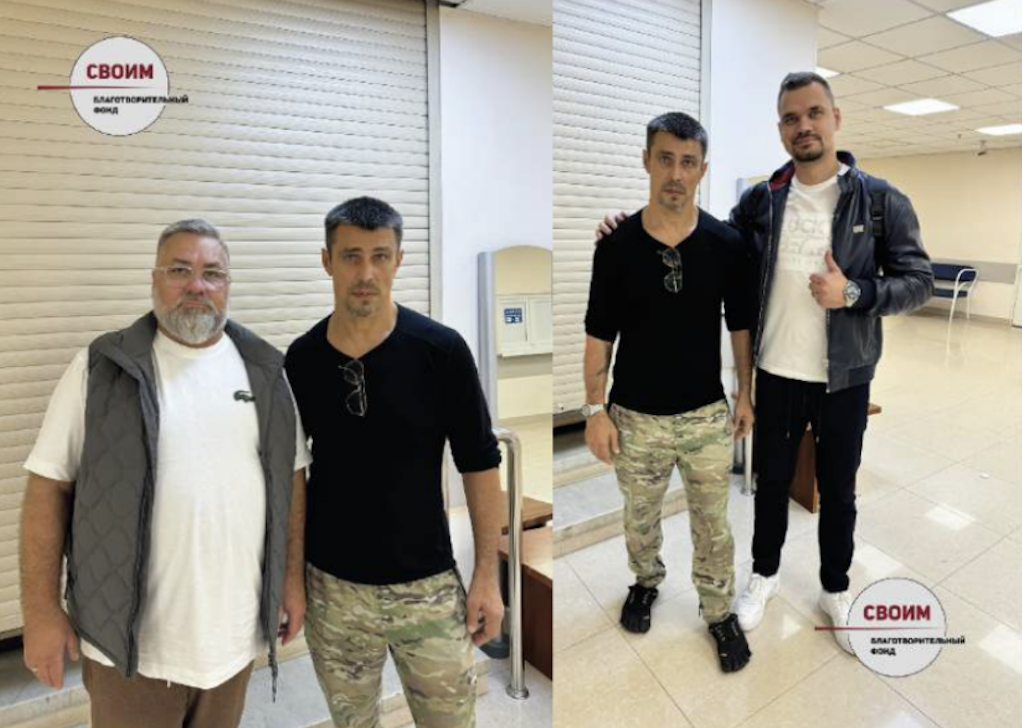
Two photos of Alexander Franchetti (in a black T-shirt) during rehabilitation paid for by the charity foundation “Svoim” | Source: Fond Svoim screenshot
However, Udalcov considers both options unacceptable for Pravfond. The editorial office does not know whether and how the lawyers were ultimately paid. The only thing that is certain is that Petra Karbanová still represents Frančetti today, even in his absence. Frančetti himself continues to present himself in the Russian media as a Czech prisoner of conscience.
“Psychological violence, pressure, lack of medical care and adequate food,” is how Francgčetti described the conditions in Czech custody after he arrived in Russia. In the second half of last year, he set up a fund to pay for medical complications that he claims arose during his stay in a Czech prison, where, according to him, they wanted to poison him.
About the Pravfond Emails
This compilation was published in two original versions in Czech on Investigace cz., about Asmat Shanava here, and about Alexander Franchetti here.
Subscribe to Goulash, our original VSquare newsletter that delivers the best investigative journalism from Central Europe straight to your inbox!
A Czech journalist, Pavla Holcová is the founder and editor-in-chief of the Czech Center for Investigative Journalism. She is an editor at OCCRP and a member of ICIJ. She was a John S. Knight Fellow at Stanford University (2023). Pavla is the winner of the ICFJ Knight International Journalism Award and, with her colleagues Arpád Soltész and Eva Kubániová, the World Justice Project’s Anthony Lewis Prize Award. She is based in Prague.

